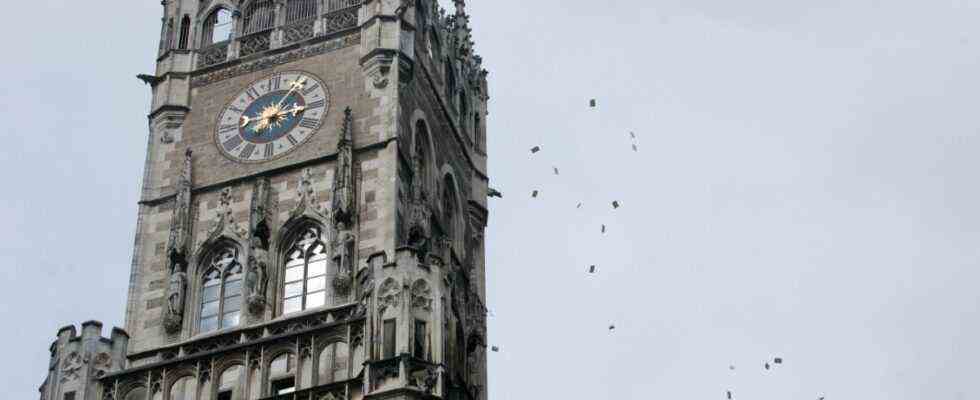Since the 2020 election, the green-red coalition has only had a knack for finances, but now it is experiencing a positive surprise for the first time. In 2021, the city will have almost half a billion euros more in trade tax available than previously calculated. In total, it will take 684 million more. However, she also has to spend 295 million euros more, mainly because of the consequences of the corona crisis. In the end, there is still a hole of 237 million euros in the supplementary budget for 2021, which will be adopted in the coming weeks.
Lord Mayor Dieter Reiter (SPD) therefore considers cheers to be premature and even wants to give “the party crashers”. “There is nothing to spend and nothing to distribute,” he warned. A family would not be too happy if at the end of the year they were still spending a lot more than they were earning. At the same time he was happy “that the trend is going in the right direction,” said Reiter. The 478 million euros increase in trade tax for the year 2021 showed “that the Munich economy is stable” and that the Munich mix of large companies and smaller firms, especially in the craft sector, can support the city. That makes him “reasonably positive” for the coming years. However, Reiter does not yet see an end to the strict austerity program. “We can only talk about it when we no longer have a deficit on the draft budget for 2022.”
Many a threatened increase in city fees or admissions, as they are being considered due to the financial crisis, could continue to threaten the people of Munich. Because the pressure remains high: The smaller minus in the city’s current business would still break the legal requirements for municipal budgets if looser rules did not apply due to Corona. Many fees and admissions have not been increased for many years and are also in a very moderate range compared to other cities, according to the city council.
However, the employees of the commune can have hope, at least if the SPD parliamentary group has its way. “If tax revenues continue to recover so steadily, our top priority is to relieve the city’s employees,” said parliamentary group leader Anne Huebner. The “actual vacancy freeze” could then be ended and important issues such as living could be increased in terms of personnel. That, in turn, could benefit citizens again in the short and long term. Fast, for example, in the city’s service areas, where issues could be dealt with more quickly. With longer lead time for faster planning and implementation of projects such as the expansion of local public transport. But parliamentary group leader Hübner also warns against too much euphoria. “The development is positive, but we still have a budget deficit, so we shouldn’t get too cocky.”
Kämmerer Christoph Frey (SPD) was able to reduce costs again with the investments of the city. In the draft supplementary budget, these now amount to 1.6 billion (instead of 1.848 billion as planned). The debt that the city has to take on for this is reduced by 200 million euros, but it still comes through with 1.2 billion euros. This will continue on this scale in the coming years, as complex projects such as the school building offensive have progressed so far that extensive bills will have to be paid.

